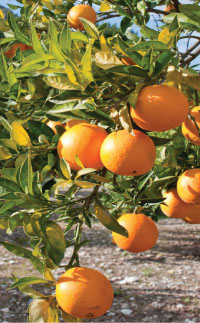Soil & Sea: reports from our producers
This article was originally published in April 2012

The organic kiwi crop was stellar this year, but the fruit was slightly smaller than usual.
Washington apples have had a banner year of strong sales and prices, while pear prices have not been quite as strong due to a record crop. Excellent quality fruit has led to strong demand domestically and abroad, with demand from India especially high.
The domestic crop of organic Haas avocados is much better than last year, though over the next few months, the lion’s share of fruit will continue to be imported from Mexico.
Exports of beef, pork and lamb rose sharply last year and may have been record-breaking, due largely to restored consumer confidence in countries such as Japan and South Korea. Confidence of foreign consumers took a nosedive following the finding of mad cow disease in a U.S. cow in 2003.
Pacific halibut prices, which have more than doubled since 2007, are poised to head even higher this season because this year’s quota is reduced about 18 percent to 33.5 million pounds. Catches of Pacific halibut have been steadily declining over the past decade, from a high of about 76 million pounds in 2004.
Production of rainbow trout, which has been farmed in the U.S. since the 1800s, continues to decline. Increasing restrictions on water rights in Idaho’s Magic Valley, which produces about half of all U.S. trout, have made it harder on farms to get water from the Snake River aquifer.
Idaho caviar is by far the most valuable agricultural commodity in the state — fetching upward of $100 per ounce — and the industry is set for rapid growth. That’s because thousands of female sturgeon are nearing harvest age. It takes about 12 years for white Idaho sturgeon to produce eggs.
